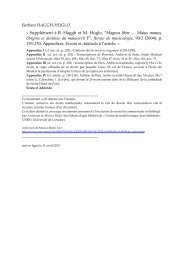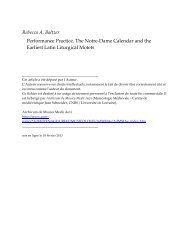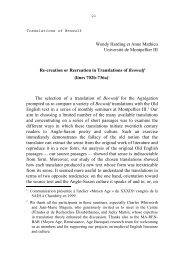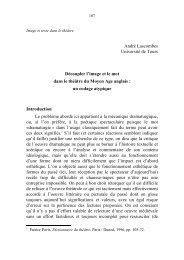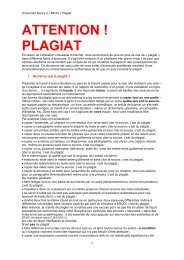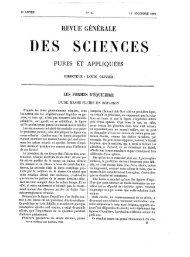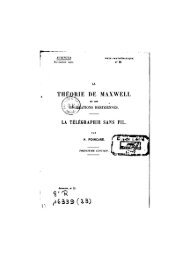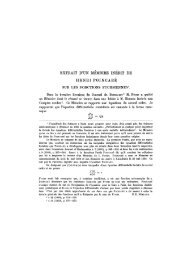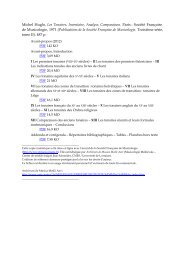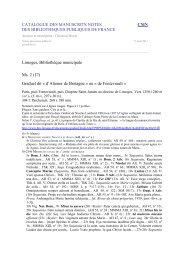Create successful ePaper yourself
Turn your PDF publications into a flip-book with our unique Google optimized e-Paper software.
Translations of Beowulf<br />
21_(12U<br />
Wendy Harding et Anne Mathieu<br />
<strong>Université</strong> de Montpellier III<br />
Re-creation or Recreation in Translations of Beowulf<br />
(lines 702b-736a) 1<br />
The selection of a translation of Beowulf for the Agrégation<br />
prompted us to compare a variety of Beowulf translations with the Old<br />
English text in a series of monthly seminars at Montpellier III. 2 Our<br />
aim in choosing a limited number of the many available translations<br />
and concentrating on a series of short passages was to examine the<br />
different ways in which these translations initiate twentieth century<br />
readers to Anglo-Saxon poetry and culture. Such an exercise<br />
immediately demonstrates the fallacy of the old notion that the<br />
translator can extract the sense from the original work of literature and<br />
reproduce it in a new form. An analysis of the original Old English<br />
passages — our source passages — showed that sense is indissociable<br />
from form. Moreover, our study of the chosen translations showed<br />
how each translator produced a new text whose form was inextricable<br />
from its sense. It seemed more useful to understand the translations in<br />
terms of two opposite tendencies: on the one hand, orientation toward<br />
the source text and the Anglo-Saxon culture it speaks of and to; or, on<br />
1 . Communication présentée à l'atelier «Moyen Age » du XXXIX e congrès de la<br />
SAES à Chambéry en 1999.<br />
2 . We thank all the participants in these seminars, especially Charles Whitworth<br />
and Jean-Marie Maguin, who generously invited us to meet in the Centre<br />
d'Études et de Recherches Élisabéthaines, and Jacky Martin, whose expertise<br />
in translation theory enhanced the discussion. Thanks also to the MA-REN-<br />
BAR (Moyen Age, Renaissance, Age Baroque) research team for welcoming<br />
us as members and for supporting our projects on medieval English literature<br />
and culture.



